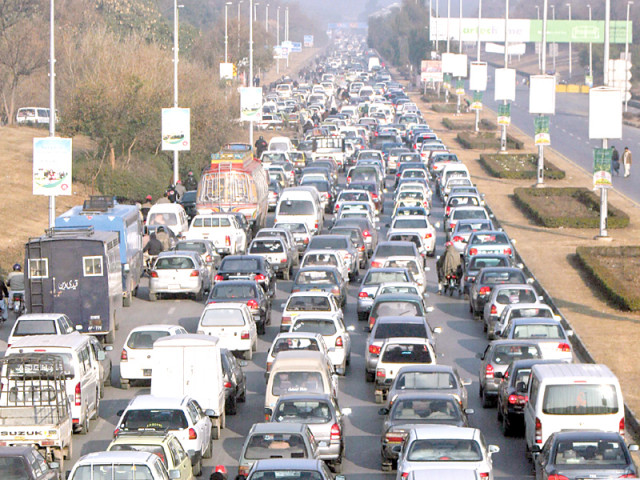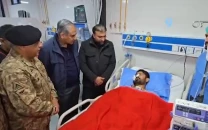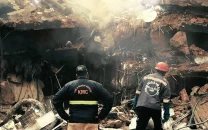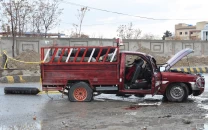Road barricades: The long road to (in)security
Traffic police cite them as a safety precaution, commuters believe they’re better off without the blockades.

On his daily commute to work, Aaqib Ahmed, a banker working in Islamabad, like thousands other, faces many hurdles in the shape of police check points. According to him, these blocks of concrete are a mere waste of time and fuel, as they force a pile up of vehicles in long queues particularly during rush hours.
Based in Rawalpindi, he has to cover a considerable distance to get to his office, “I have to go through at least three check points. If I am lucky I waste only 15-20 minutes but this time can easily shoot up on a bad day,” he added.
“Plus they (police) do not even check the vehicles properly anymore,” said Ahmed, while talking to The Express Tribune in a survey conducted on motorists interviewed at different police check posts in the city.
A majority of those interviewed shared Ahmed’s views. However, some of them differed while still others said the check points had become a kind of routine for them; something they did not notice anymore.
However, there were people like Falak Sher, a resident of sector G-11 who works at a public office at the Constitution Avenue, who said the check points were necessary or else ‘terrorists will have a free hand to harm innocent people’. He was supported by Laiq, a businessman, who said, “A little trouble at the check points was in the greater interest of the people.”
Those who objected to the continued presence of barricades raised the point that the crowded check points provide a soft target to the terrorists. “God forbid, if they (terrorists) target one of these check points, there will be a huge loss of life,” said Sadiq while talking to The Express Tribune at an exit checkpoint located near Zero Point area. However, police officers told The Express Tribune the check points were a big deterrent and helped in keeping the terrorists a bay in the capital, which remains a target for them as it provides massive media coverage to their activities.
“Most of the arrested terrorists that we have interrogated told us that in their planning they always preferred to avoid checkpoints,” said a police officer, who was responsible for the security of one of the four zones of the city. He added that the check points were not supposed to serve as points for catching terrorists; instead they were barriers that stop them from entering the city. “We know through intelligence sources that several disarrayed splinter groups of terrorists would heave a sigh of relief at the removal of the check points, which will be a blow to the capital’s security,” added the police officer.
But, the record of terrorism incidents in Islamabad during the last three years shows that terrorists managed to infiltrate the city to hit their targets despite the presence of the checkpoints. And they also managed to flee from the area unhurt.
A life attempt on former Minister for Religious Affairs Hamid Saeed Kazmi in sector G-6, the killing of former Minster for Minorities Affairs Shahbaz Bhatti in sector I-8 and two gun attacks on army officers in the same sector are some of the instances, where the assailants were never caught despite the presence of over 100 check points in three cordons of the city then. The number has now been reduced to over 50.
However, the police officers insisted that removing the check points will be risky. “The force deployed there has to stay there in any case,” said a police officer responsible for police operations.
When contacted, Inspector General of Police Islamabad, Bani Amin did not respond to the call for his views. He was the only officer who was authorised to speak to media on record, said all police officers interviewed.
Published in The Express Tribune, January 28th, 2012.



















COMMENTS
Comments are moderated and generally will be posted if they are on-topic and not abusive.
For more information, please see our Comments FAQ